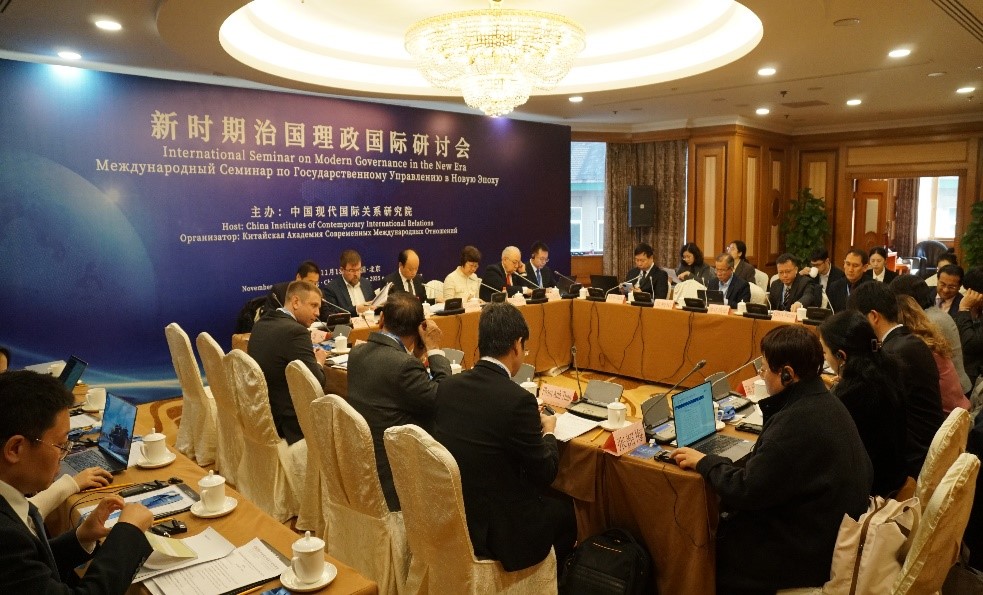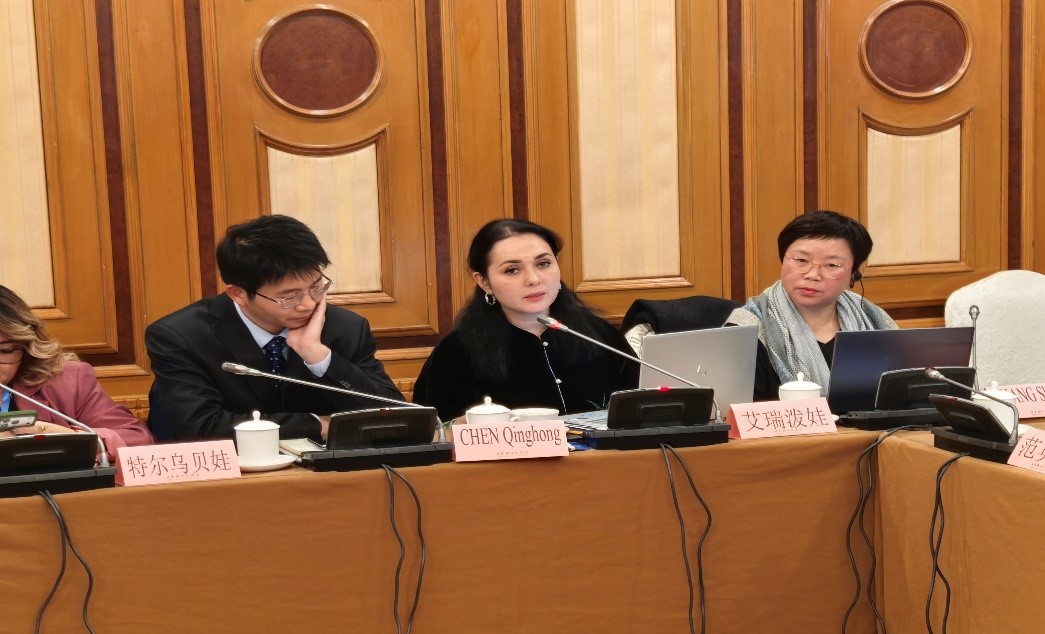ISRS expert presents Uzbekistan’s experience in reforms and green transformation at a seminar in Beijing

Madina Aripova, Chief Research Fellow at the Institute for Strategic and Regional Studies under the President of the Republic of Uzbekistan (ISRS), took part in the international seminar “Public Governance in the New Era,” recently held in Beijing at the initiative of the China Institutes of Contemporary International Relations (CICIR).
Speaking at one of the seminar’s sessions devoted to sharing experience in the field of public governance, M. Aripova outlined the priority areas of Uzbekistan’s reform agenda and emphasized the country’s growing role in the regional sustainable development framework.

The expert presented Uzbekistan’s vision for building a modern low-carbon economy, strengthening energy security, and advancing human capital development. She noted that Central Asia has significant potential for ecological transformation, and Uzbekistan is already taking practical steps in this direction.
It was underscored that Tashkent views green energy as a strategic pillar of its economic modernization. In recent years, the country has implemented a number of large-scale renewable energy projects, enabling Uzbekistan to generate 23% of its electricity from renewable sources.
Currently, the country operates 13 solar and 5 wind power plants with a combined capacity of 4.7 GW. By 2030, Uzbekistan aims to increase renewable capacity to 10 GW and raise the share of green energy to 54%. According to the ISRS expert, achieving these goals requires active engagement of international investment and technology, including partnerships with Chinese energy companies and other foreign investors.
Addressing regional cooperation, M. Aripova noted that Uzbekistan views collaboration with Central Asian countries and its partnership with China as key elements of ensuring the region’s sustainable development. She highlighted that joint initiatives in green industrial production—including the launch of the BYD Uzbekistan Factory for electric vehicle manufacturing—are contributing to strengthening regional industrial cooperation and forming new technological value chains.
The expert also stressed the importance of capacity-building and scientific exchange, noting the significance of establishing the Central Asian Research Center for Ecology and Environment at the Green University. The center will serve as an important platform for joint research and training of specialists in sustainable development.
Special attention was given to the need to enhance the collective resilience of Central Asian states to global challenges, including climate change, cyber threats, and information risks. In this context, she emphasized that Uzbekistan supports the development of international dialogue aimed at improving the effectiveness of public governance, modernizing the public sector, and strengthening regional security.
Participants of the seminar highly appreciated Uzbekistan’s approach to green transformation, public administration modernization, and the development of international cooperation. According to many experts, Uzbekistan’s experience and initiatives constitute an important contribution to the regional agenda, particularly against the backdrop of growing global challenges and the need for robust development mechanisms.
CICIR is one of China’s leading research institutions. Founded in 1980 and granted academy status in 2003, it comprises 16 research institutes specializing in global and regional studies, as well as country-specific and thematic research. A Memorandum of Understanding between ISRS and CICIR was signed in 2017.






